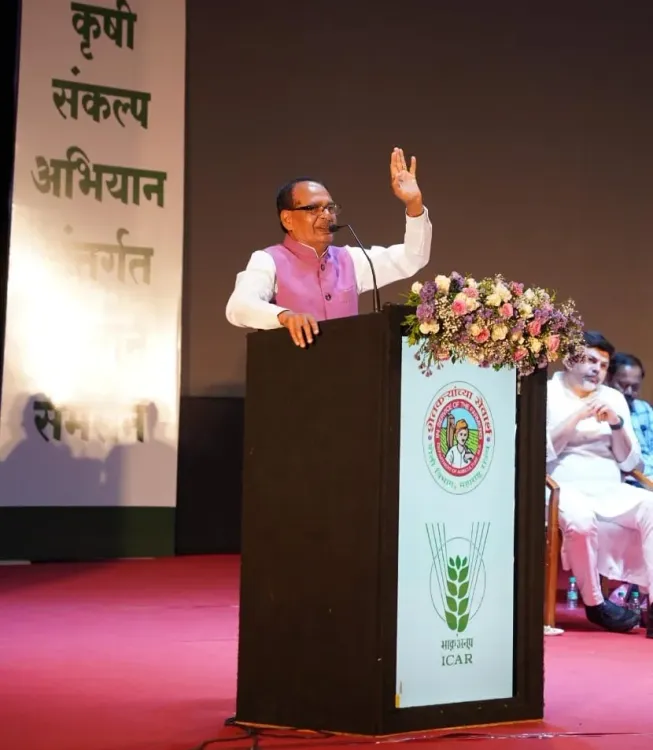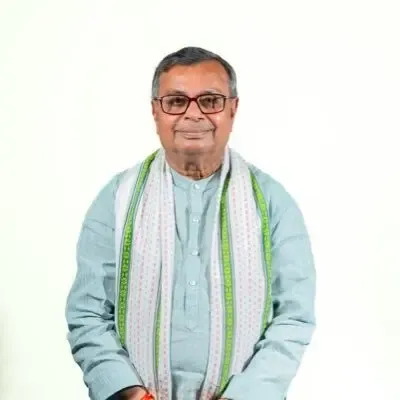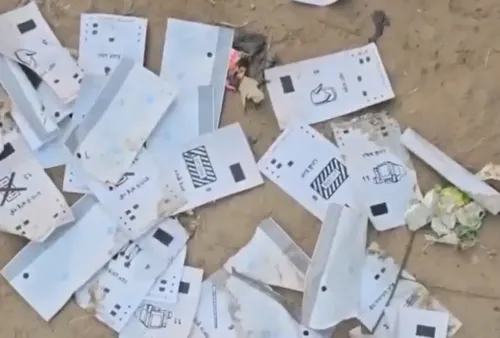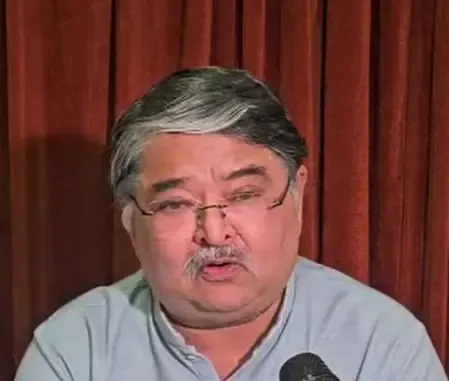Is Maharashtra Leading the Way with a New Soil Library?

Synopsis
Key Takeaways
- Maharashtra inaugurates the first National Soil Spectral Library.
- Utilizes hyperspectral sensor technology for data collection.
- Introduction of AI-based Smart Trap technology for pest management.
- Launch of a Clean Plant Lab in Pune for research on pure plant species.
- Emphasis on collaboration between agricultural institutions for development.
Nagpur, May 18 (NationPress) - On Sunday, the Union Minister of Agriculture and Farmers Welfare, Shivraj Singh Chouhan, unveiled the National Soil Spectral Library in Nagpur, making Maharashtra the inaugural state to develop a comprehensive soil map. This library contains critical data on soil pH value, density, and elemental composition, all gathered through advanced hyperspectral sensor technology by the National Bureau of Soil Survey and Land Use Planning.
Additionally, Chouhan introduced an AI-driven Smart Trap technology designed to combat the pink bollworm pest, which poses a threat to cotton crops. This innovative solution will provide farmers with timely alerts about pest infestations.
In a significant announcement, the minister revealed that a national laboratory would soon be established in Pune as part of the Clean Plant Program, focusing on research related to the original species of plants.
To enhance agricultural output, Chouhan highlighted the importance of the Clean Plant Program, which aims to promote pure and disease-resistant nurseries. He urged farmers to prioritize high-quality seeds, soil testing, and strategies to lower production costs.
At the farmers' convention, Krishi Samvaad, held under the 'Vikasit Krishi Sankalp Abhiyan', Chouhan advocated for the motto of “One Nation, One Agriculture, and One Team” to bolster farmer self-sufficiency and increase their incomes.
He emphasized the need for collaboration among the Union Agriculture Ministry, State Agriculture Ministry, Indian Council of Agricultural Research (ICAR), Krishi Vigyan Kendra, and all agricultural institutions. By working together, setting clear targets, and developing actionable roadmaps, transformative changes can be achieved in agriculture, he asserted.
During the event, Chouhan noted that ICAR operates 113 institutes nationwide, with 11 located in Maharashtra. He announced a forthcoming meeting with heads of ICAR institutes at the National Bureau of Soil Survey and Land Use Planning in Nagpur to outline a strategy for agricultural advancement in Maharashtra.
The minister reiterated the government's commitment to bridging the divide between laboratories and agricultural fields. With 16,000 agricultural scientists under ICAR, teams will visit villages alongside agricultural extension officers to educate farmers on new seed varieties and innovative farming methods.
Chouhan also mentioned a 15-day campaign scheduled from May 29 to June 12, during which agricultural scientists will guide farmers on sustainable practices and preparations for the Kharif season.
Meanwhile, Maharashtra Chief Minister Devendra Fadnavis provided insights into the Wainganga-Nalganga river linking project, aimed at enhancing irrigation in Vidarbha. He affirmed the state government's full support for the inclusive policies proposed by Chouhan.
State Agriculture Minister Manikrao Kokate addressed the ongoing labor shortages for cotton picking, mentioning ongoing research and development for battery-operated small tractors. If successful, these innovations will be presented to the Agriculture Ministry.
During the event, farmers excelling in natural farming, organic farming, and farmer producer organizations were honored by the Union Agriculture Minister and the Chief Minister.
The program witnessed significant participation from farmers and agricultural officials from the Nagpur division.









